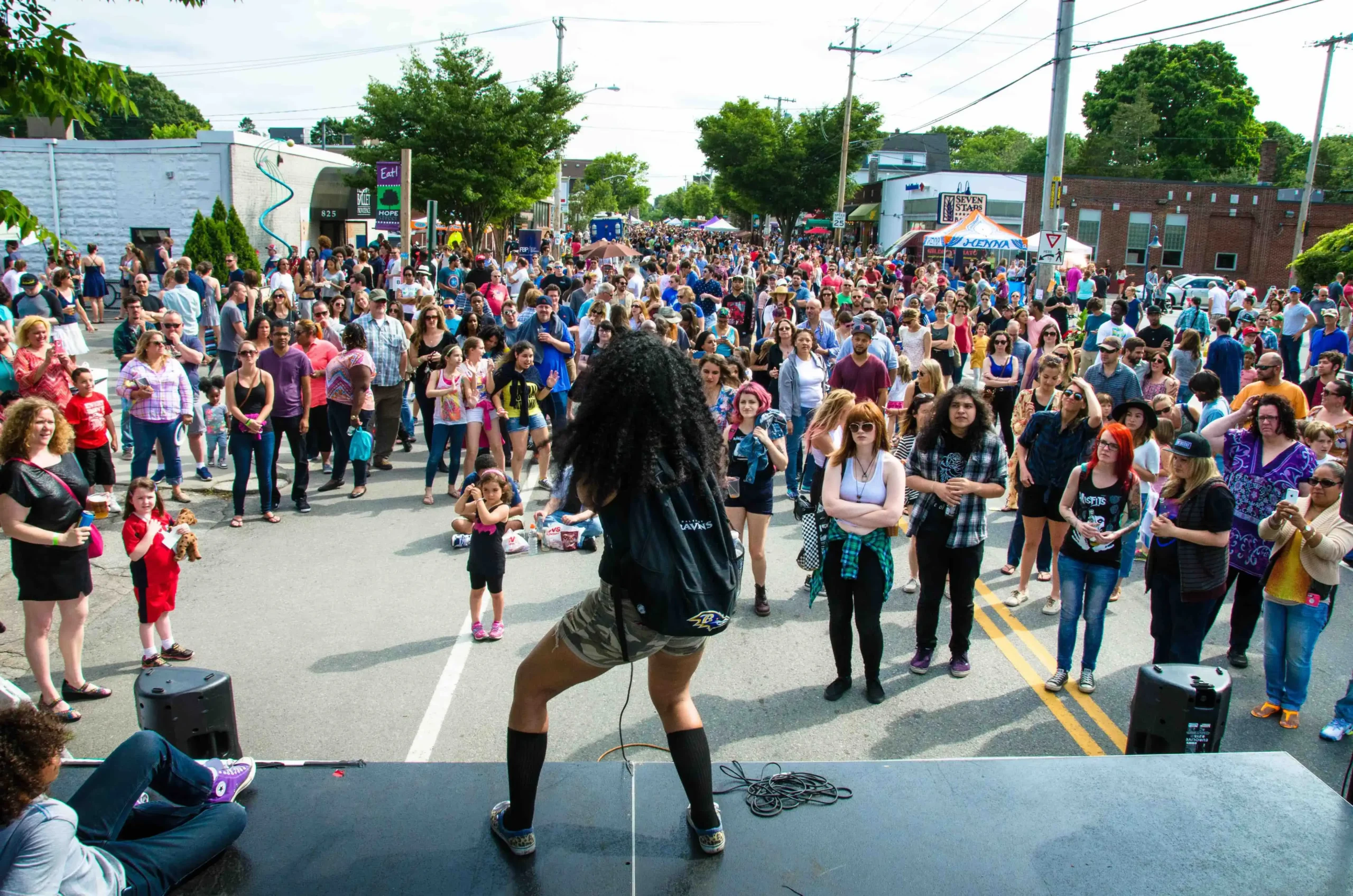A Hope Street block party is planned for August 4, organized by the same businesses that staunchly opposed a transformative bike lane two years ago, arguing it would be disastrous. Ironically, supporting this block party contradicts their earlier pushback against the bike lane.
A block party would surely be horrible!
With the reduction of parking spaces, no one will be able to access the area, including those who are elderly or disabled. Emergency vehicles attempting to reach Miriam Hospital will have to be rerouted. Traffic will flood neighboring streets, and most importantly, businesses will have to manage the huge loss from the reduction of customers.
— Satire Sam, business owner & block party hater
In context, two years ago, the Providence Streets Coalition laid out a temporary bike lane trail to overwhelming success. As predicted by advocates and experts, the data from the temporary trail proved that the street became more accessible, parking remained ample due to increased non-car transit, business wasn’t negatively affected, and Hope Street felt overwhelmingly safer; children could now even ride their bikes to the neighboring schools!
Unfortunately, throughout that process, businesses remained devoted against the bike lane. It would later come in the 2022 mayoral race that Brett Smiley won, halting any proposed idea that the bike lane would remain permanent.
Everyone lost, especially the opposition. Opponents fail to understand that the solution to a better community and booming business is right under their noses. Other areas of Providence and cities around the world caught on years ago. Streets are routinely and permanently closed so people can enjoy the areas without the disturbance of motor vehicles. Notably, bike lanes, pedestrian infrastructure, and public transit are at the forefront of this endeavor.
Hope Street will remain dangerous and detrimental to the community if it remains car-centric. The businesses’ support for a block party—which mirrors the ideas they previously rejected—highlights the irony and their refusal to acknowledge the benefits of bike lanes, accessible and car-free streets, and modern community design. Moreover, they want to have their cake and eat it too: the community can only benefit if businesses get it their way, even if their approach contradicts the progress they claim to support.
